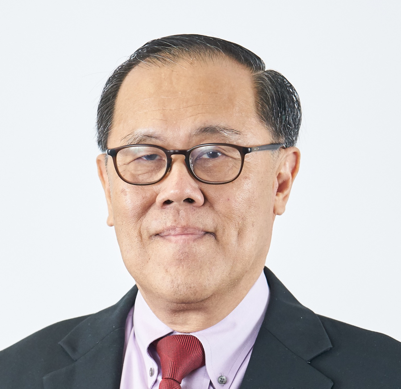Grid Digitalization and Sustainable Electricity
- Date
- October 04, 2024
- Time
- 2:00 PM EDT - 3:00 PM EDT
- Location
- CUI-219, 44 Gerrard Street East, Toronto, ON M5B 1G3
- Open To
- CUE/TMU Members interested in Power System/Energy
- Contact
- Karen Ho-Cespedes at khocespedes@torontomu.ca
Join the Centre for Urban Energy for a lecture with Professor Hoay Beng Gooi from Nanyang Technological University, Singapore.
Please contact Karen Ho-Cespedes by September 30th to register. Availability is limited.
Grid digitalization refers to the integration of ICT and data analytic technologies into the power grid to enhance its efficiency, reliability, security, electricity affordability and sustainability while enabling new services, skills, and customer empowerment. However, it poses significant challenges, such as data privacy, cybersecurity, interoperability, regulation, governance, and social acceptance.
Sustainable electricity sources like solar, wind, hydropower, and geothermal energy help lower greenhouse gas emissions, mitigating climate change and reducing air pollution. Cleaner energy sources lead to better air quality, which can reduce health problems and create a better liveable environment. They can meet our current energy needs without compromising the ability of future generations to meet theirs.
Since the Paris Agreement of Climate Change has become a global attention, there has been an increasing number of renewable energy deployments in countries to meet their carbon emission targets. The penetration of renewable energy causes voltage and frequency instability, which leads to poor power quality. To enable more penetration of renewable energy into the grid while maintaining grid stability, a balancing mechanism via fast-acting power components such as energy storage systems (ESSs) needs to be in place. ESSs can absorb the excess generation and produce the generation shortfall quickly and can help to maintain stability at an acceptable level.
Meanwhile, the liberalization of the electricity supply industry benefits both large business and small household consumers. Consumers are given more choices through competitive pricing and innovative offers such as electricity plans bundled with value added products or services. Environmentally conscious consumers can now opt for plans with solar/wind power.
A rapid growth in deployment of renewable-based distribution generators in residential buildings converts residential consumers into prosumers. Energy sharing among neighboring prosumers has already been introduced in the modern prosumer dominated microgrids. The surplus energy of prosumers can be shared with their neighbors and/or sold to the upstream grid. Conversely, energy shortage can be sought from the neighbors and/or bought from the upstream grid. The concept of local energy sharing, trading, and management cannot be applied without a proper platform that can facilitate information exchange among peers and assist in monitoring and controlling the distribution network. Smart energy management services and decision support tools are required to enable the prosumers to make sound transaction decisions while negotiating with other actors/peers in the distribution energy market. The same platform can facilitate EV charging and participation of demand response management.
Program
1:30 PM: Registration and Refreshments
2:00 PM: Introduction - Bala Venkatesh, Professor & Director, Centre for Urban Energy, TMU
2:10 PM: Grid Digitalization and Sustainable Electricity
2:50 PM: Q/A
3:00 PM: Closing Remarks
Accessibility
Toronto Metropolitan University is committed to providing an accessible learning environment. Please let us know if we need to make any accessibility accommodations to ensure your inclusion in this event.
Notices
- Please register beforehand, by emailing Karen Ho-Cespedes by September 30th, 2024.
- Location and travel information can be found on our Contact page.
Guest Speaker

Dr. Hoay Beng Gooi, Associate Professor, Nanyang Technological University, Singapore
Hoay Beng Gooi (external link) received his PhD degree from The Ohio State University, Columbus. He was Assistant Professor with Lafayette College, Easton and Senior Engineer/Team Leader with EMPROS (now Siemens), Minneapolis, where he was responsible for the design, testing and coordination of domestic and international energy management system projects. In 1991, he joined School of Electrical and Electronic Engineering, Nanyang Technological University (external link) (NTU) Singapore as Senior Lecturer and later promoted to Associate Professor. He was Deputy Head of Power Engineering Division, EEE, NTU, Chairman of Fundamentals of Engineering Examination (Electrical) Sub-Committee for Professional Engineers Board Singapore, and Co-Director, Singapore Power (SP) Group-NTU Joint Lab. He served in EE Standards Committee of Singapore Standards Council and was Editor of IEEE Transactions on Power Systems and Editor of IEEE Power Engineering Letters. In 2021, he won Outstanding Associate Editor Award, IEEE Transactions on Power Systems. He taught Energy Management System courses for Power System Control Centre in Singapore, Indonesia, and Malaysia. His project team won the award from the 2023 Carbon Emission Reduction contest organized by OPAL-RT. (external link)
He is a Life Fellow of IEEE, a registered professional engineer in Pennsylvania, USA and Singapore, a member of Energy Technical Committee, Institution of Engineers Singapore, and an IEEE IES Distinguished Lecturer. He serves in Editorial Board of IEEE Access. He is a faculty member of School of EEE, NTU and an independent microgrid consultant in Singapore. His current research interests include energy transition, renewable energy resources, peer-to-peer energy trading, and digitalizing energy.